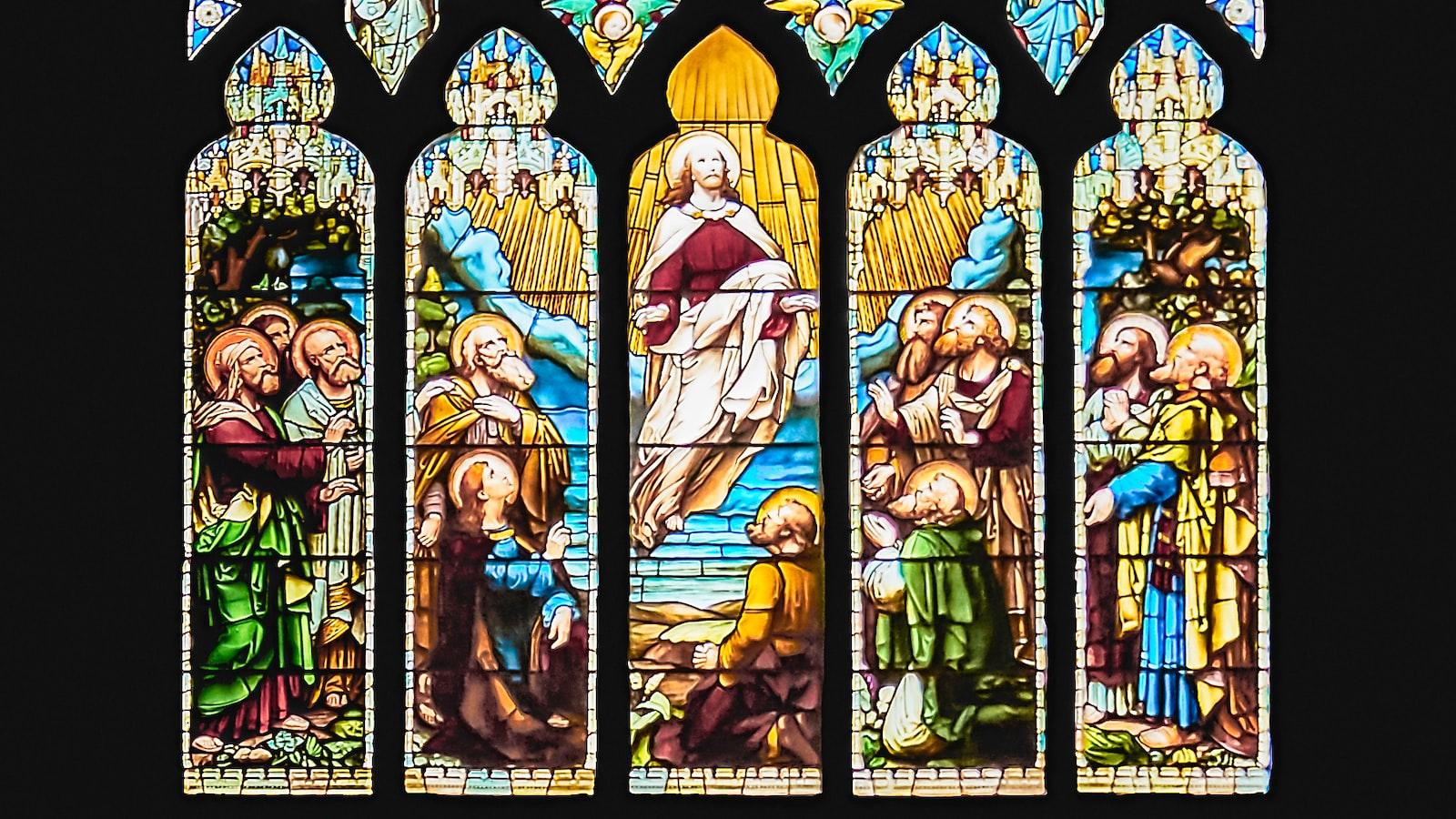Hey there! Have you ever wondered about the biblical meaning of freedom? Well, you’ve come to the right place. In this article, we’re going to dive into what freedom really means according to the Bible. So, if you’re ready to uncover some thought-provoking insights, let’s get started!
Understanding Freedom in the Bible
In the Bible, the concept of freedom holds deep significance and carries profound implications for believers. Understanding freedom in the biblical context requires a comprehensive knowledge of the scriptures and a willingness to explore its multifaceted nature. The biblical meaning of freedom encompasses liberation from sin, the ability to live in accordance with God’s will, and the promise of eternal life.
1. Freedom from Sin:
One of the central messages of the Bible is the offer of freedom from sin through the sacrifice of Jesus Christ. The Scriptures teach that all human beings are born into a state of sin, spiritually separated from God. However, through faith in Jesus Christ, believers can experience redemption and freedom from the guilt and consequences of sin. This freedom involves a reconciled relationship with God and the opportunity to live a transformed life in the light of His truth and love.
2. Freedom to Obey God’s Will:
Another aspect of biblical freedom is the ability to willingly and joyfully follow God’s will. The Bible teaches that true freedom is not the absence of rules or constraints, but rather the freedom to choose and embrace righteousness. It is through obedience to God’s commandments and alignment with His purposes that believers experience genuine liberation and a life of meaning and purpose.
3. Freedom in Christ:
Through the New Testament, the concept of freedom is intricately linked to the person of Jesus Christ. The Scriptures describe Jesus as the ultimate liberator, who sets humanity free from the bondage of sin and its consequences. It is in Him that believers find true freedom and the capacity to live a life that is pleasing to God. This freedom in Christ encompasses not only spiritual liberation but also emotional, mental, and physical healing.
4. Freedom and Eternal Life:
Lastly, the biblical notion of freedom extends beyond the earthly realm and encompasses the promise of eternal life in the presence of God. The Scriptures teach that through faith in Jesus, believers receive the gift of eternal life and are set free from the fear of death. This eschatological freedom enables believers to live with hope, knowing that they will one day experience the fullness of God’s kingdom and enjoy perfect communion with Him forever.

Exploring the Depths of Biblical Liberty
Freedom, a notion deeply ingrained in humanity, holds profound significance in the realm of biblical teachings. allows us to delve into the true essence of this concept and understand its meaning within the context of scripture. Throughout the Bible, freedom is not only seen as a physical liberation from bondage but also as a spiritual release from the chains of sin and guilt.
One of the key aspects of biblical freedom is the idea of being set free by the truth. Jesus proclaimed, “You will know the truth, and the truth will set you free” (John 8:32). The truth referred to here is not merely the accumulation of knowledge, but the absolute truths found in God’s Word. Embracing these truths grants us the freedom to live in accordance with God’s design and purpose for our lives.
Another aspect of biblical freedom is the freedom to choose. God has granted us free will, allowing us to make choices that shape our lives. However, this freedom is not license for selfish desires or sinful pursuits. Rather, it is an invitation to align our will with God’s will and walk in obedience to His commandments. The Apostle Paul emphasizes this in Galatians 5:13, stating that “you were called to be free. But do not use your freedom to indulge the flesh; rather, serve one another humbly in love.”
| Benefits of Biblical Freedom | |
|---|---|
| 1. Redemption from sin | Biblical freedom liberates us from the bondage of sin, offering forgiveness and redemption through the sacrifice of Jesus Christ. |
| 2. True joy and peace | Living in the freedom of God’s truth brings genuine joy and peace that surpasses any temporary satisfaction the world may offer. |
| 3. Purpose and fulfillment | God’s freedom enables us to walk in His plan for our lives, discovering our unique purpose and experiencing true fulfillment. |
| 4. Authentic relationships | Through freedom in Christ, we can cultivate genuine and loving relationships, built on honesty, grace, and forgiveness. |
Lastly, biblical freedom is not a license for lawlessness or moral relativism. Rather, it is an invitation and a calling to live a life of righteousness and love. As Galatians 5:1 exhorts us, “It is for freedom that Christ has set us free. Stand firm, then, and do not let yourselves be burdened again by a yoke of slavery.” It is in this freedom that we find true liberation, hope, and an abundant life as we live out the biblical meaning of freedom.

Unveiling God’s Perspective on Freedom
When it comes to freedom, our understanding may be shaped by societal norms, personal beliefs, and cultural influences. However, as believers, exploring the biblical meaning of freedom is crucial in order to align our perspectives with God’s truth. Let us dive deeper into God’s perspective on freedom and discover the profound wisdom it holds.
The Essence of Freedom in God’s Word
In the Bible, freedom is not merely an absence of physical restraints. It encompasses a deeper, spiritual liberation that sets us free from sin, bondage, and the power of darkness. God’s perspective on freedom reveals that Christ’s sacrifice on the cross sets us free from the consequences of sin, granting us eternal redemption and reconciliation with Him. As believers, we are called to embrace this freedom and walk in the freedom that Jesus has already won for us.
Freedom through Obedience
Contrary to popular belief, God’s perspective on freedom emphasizes the importance of obedience. It is not about doing whatever we please, but rather submitting our will to His perfect and loving guidance. In surrendering to God’s will, we find true freedom and experience His blessings in every aspect of our lives. Obedience safeguards us from the snares of sin and leads us to a life aligned with God’s purpose and divine plan.
The Paradox of Freedom and Responsibility
In God’s perspective, freedom is intricately tied to responsibility. As believers, we are called to exercise our freedom responsibly, not using it as a license for selfishness or indulgence. Instead, we are to use our freedom to serve and love others, following the example of Christ. The biblical concept of freedom reminds us that with privilege comes responsibility, and by embracing this paradox, we discover a life of purpose, fulfillment, and joy in serving others.
Living in Freedom and Transforming Lives
God’s perspective on freedom invites us to live liberated lives, not just for our own benefit but also for the transformation of others. As freed individuals, we are called to share the good news, release the captives, and bring hope to the brokenhearted. In the freedom we have obtained through Christ, we have the opportunity to impact lives, breaking the chains that bind others and leading them to experience the true freedom found in a relationship with God.

Discovering Hidden Gems: Freedom in Scripture
When we think of freedom, we often associate it with the ability to act and think as we please, without any constraints or limitations. In today’s society, the concept of freedom has evolved into a multifaceted idea, but what does freedom truly mean from a biblical perspective?
1. Deliverance from bondage: In Scripture, freedom is frequently depicted as deliverance from various forms of bondage. Whether it be physical slavery, spiritual oppression, or the chains of sin, the Bible teaches that God is the ultimate liberator. Through His power and grace, He sets us free from the shackles that bind us, granting us the ability to live in harmony with His divine purpose.
2. Freedom in Christ: One of the central tenets of the Christian faith is the idea that true freedom is found in Christ alone. The Gospel teaches us that through His sacrifice on the cross, Jesus redeemed us from the penalty of sin and reconciled us to God. This newfound freedom not only allows us to have a personal relationship with our Creator, but also empowers us to live a life of righteousness, love, and forgiveness.
3. Freedom of choice: While our freedom in Christ is a gift bestowed upon us, it doesn’t mean that we are exempt from making choices. Instead, Scripture encourages us to use our freedom responsibly. We have the freedom to choose between good and evil, to follow God’s commands or go astray. This freedom of choice carries tremendous responsibility, as our decisions have consequences not only for ourselves but also for those around us.
| Freedom | Responsibility |
|---|---|
| Freedom in Christ | To walk in righteousness |
| Freedom of choice | To make decisions aligned with God’s will |
4. Freedom in community: While freedom is often associated with individual autonomy, the Bible highlights the importance of community in experiencing true freedom. We are called to love and serve one another, living in unity and selflessness. It is within the context of fellowship that we find the freedom to bear one another’s burdens, to encourage, and to grow spiritually. True freedom is not found in isolation but flourishes within the interconnectedness of God’s people.
In conclusion, exploring the biblical meaning of freedom offers us a deeper understanding of this fundamental concept. We have seen how freedom goes beyond mere physical or political liberation, but encompasses a spiritual and moral dimension as well. It is about breaking free from the chains of sin, embracing God’s grace, and living a life of righteousness. By embracing this concept of freedom, we can find true liberation and fulfillment, not only for ourselves but also as we relate to others. So, let us remember that the biblical meaning of freedom is not just a privilege, but a responsibility to use our liberty wisely and in alignment with God’s teachings. May we strive to live lives that truly reflect the divine freedom we have been given.

